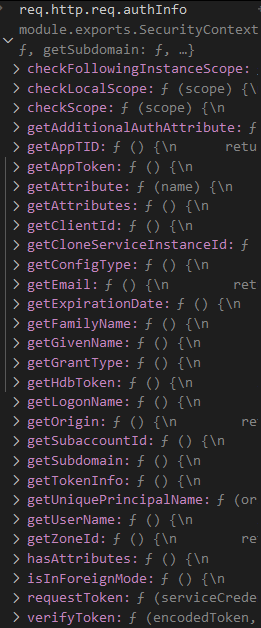https://docs.cloudfoundry.org/api/uaa/version/4.6.0/index.html#password-grant
# url from XSUAA Service Key, but replace in the url the provider subdomain with the consumer subdomain (the tenant you want to call)
@xsuaaUrl = {{$dotenv xsuaaUrl}}
# clientid from XSUAA Service Key
@xsuaaClientId = {{$dotenv xsuaaClientId}}
# clientsecret from XSUAA Service Key
@xsuaaClientSecret = {{$dotenv xsuaaClientSecret}}
@username = {{$dotenv btp_username}}
@password = {{$dotenv btp_password}}
### Get Access Token for Cloud Foundry using Password Grant with BTP default IdP
# @name getXsuaaToken
POST {{xsuaaUrl}}/oauth/token
Accept: application/json
Authorization: Basic {{xsuaaClientId}}:{{xsuaaClientSecret}}
Content-Type: application/x-www-form-urlencoded
grant_type=password
&username={{username}}
&password={{password}}
&response_type=token
### Store access token
@access_token = {{getXsuaaToken.response.body.$.access_token}}


